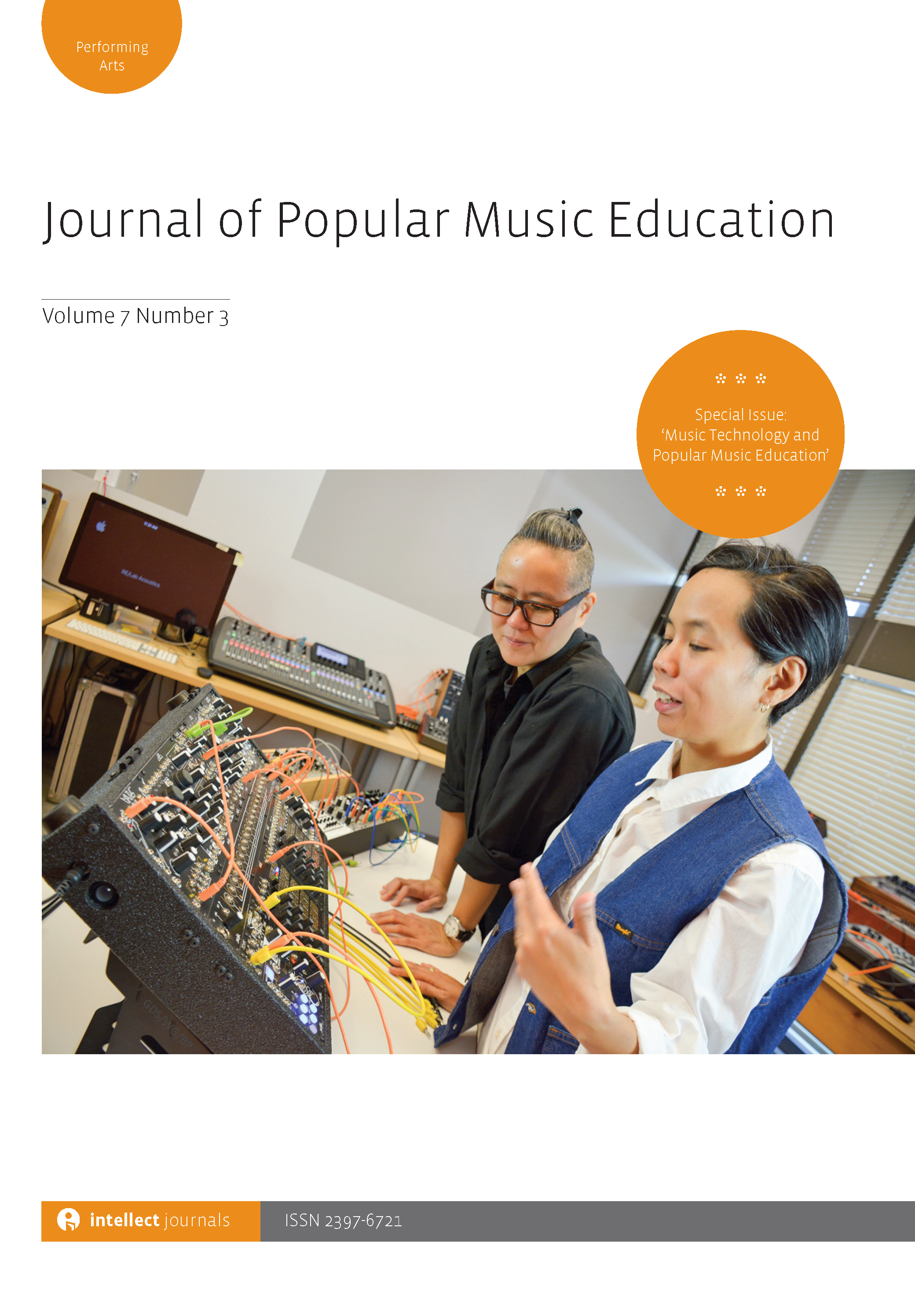
Full text loading...

Given popular music’s impact and its tradition in environmental activism, popular music education seems suited to contribute to a societal transformation towards sustainability in which the arts are increasingly considered to play an important role. The article proposes goals and methods of a climate-conscious popular music education, illustrated with examples from the author’s experience in music education. Drawing from and adding to eco-literate music pedagogy and activist music education, the article suggests that a climate-conscious popular music education should include: reducing the carbon footprint of educational practices; cultivating ecological consciousness, i.e. a connection to and appreciation of local nature; understanding climate change as a complex issue of intergenerational and global justice; using the specific potential of music to help overcome barriers to climate action, in particular its sensory, imaginative, creative, emotional, expressive and communal character.

Article metrics loading...

Full text loading...
References


Publication Date:
https://doi.org/10.1386/jpme_00098_1 Published content will be available immediately after check-out or when it is released in case of a pre-order. Please make sure to be logged in to see all available purchase options.